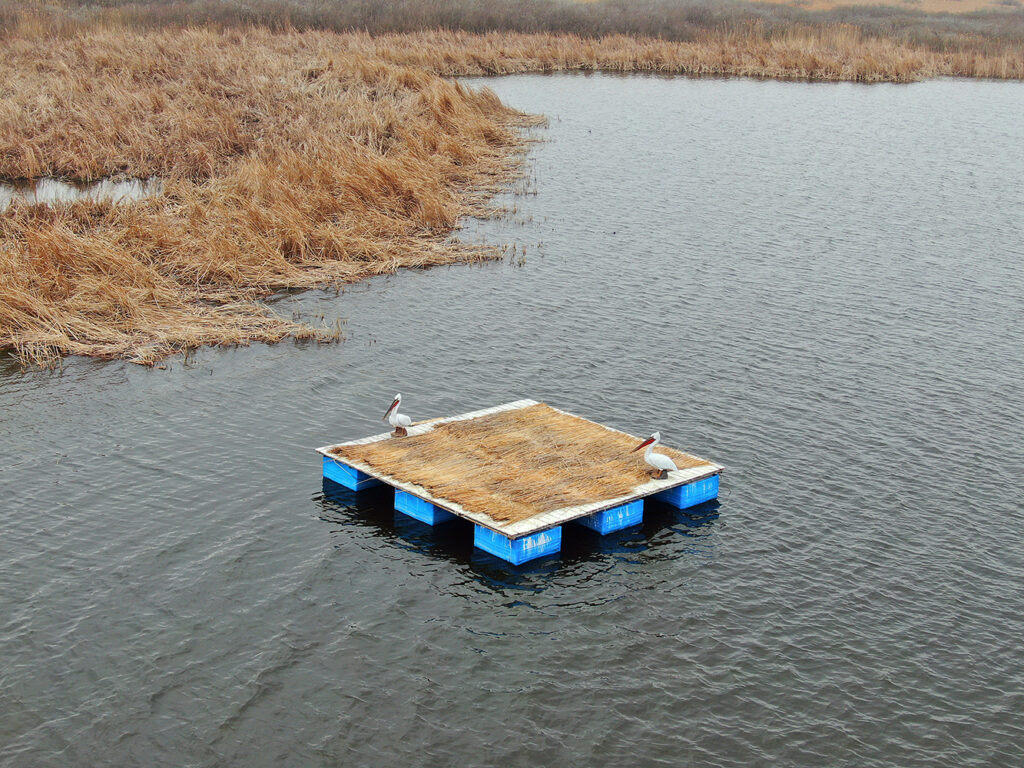The Danube Delta is one of Europe’s largest and most important wetlands. Efforts by the Rewilding Ukraine team to restore natural water flow here are great news for Dalmatian pelicans and great news for local communities.
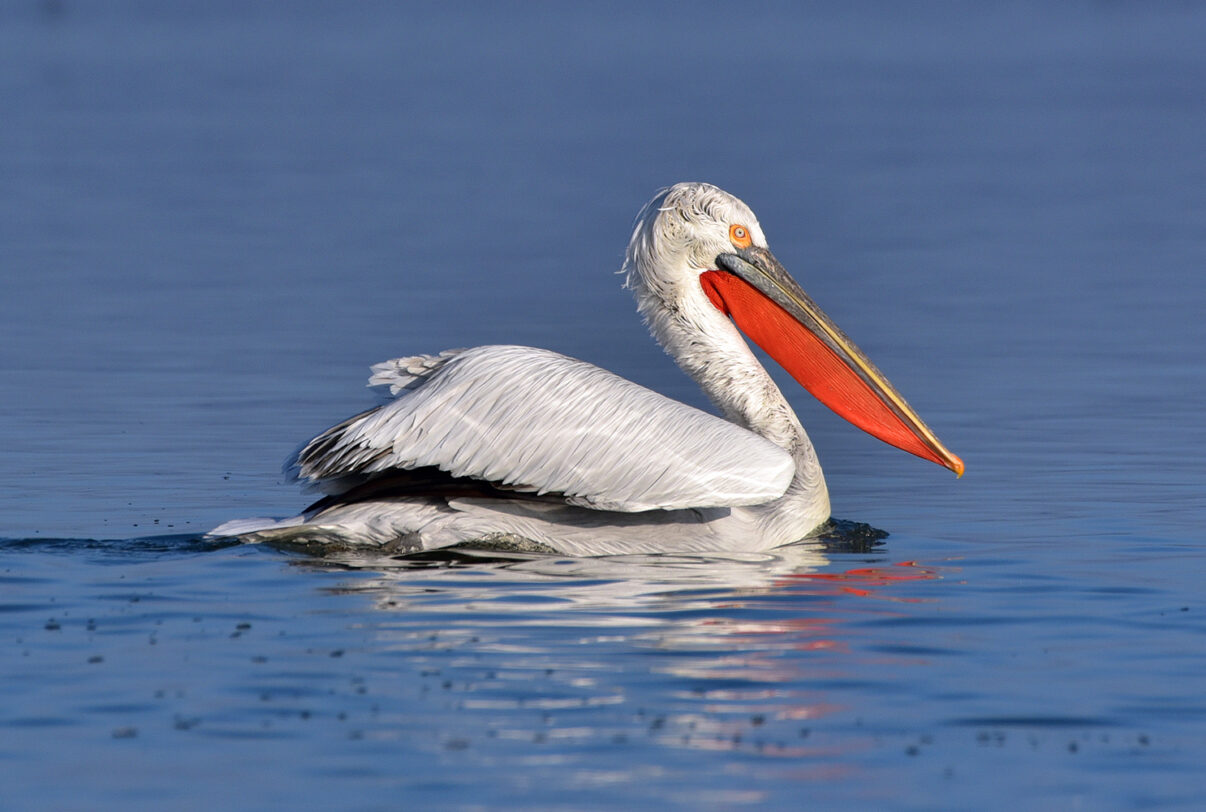
Good for people, good for pelicans
The vulnerable Dalmatian pelican is one of the Danube Delta’s most iconic indicator species. This majestic bird requires access to still, fish-filled waters undisturbed by human activity, with extensive flooded and shallow water areas. Pelican populations in the delta were hit hard by the construction of a life-sapping web of dykes and agricultural polders between the 1950s and 1980s, which disconnected huge swathes of floodplain from the Danube’s main channels and lakes. This decimated fish stocks and impaired the ability of the river to provide water for drinking and irrigation, and to mitigate flooding.
In short, engineering work carried out in the Danube Delta during the twentieth century was bad news for pelicans and wide range of other wildlife species, and bad news for local communities. To reverse some of the environmental damage, the Rewilding Ukraine team have been working hard to restore the natural flow of water in the Ukrainian part of the delta for the past few years. Their ongoing efforts, which are increasingly breathing new life into vast swathes of wetland habitat, will benefit both pelicans and people.
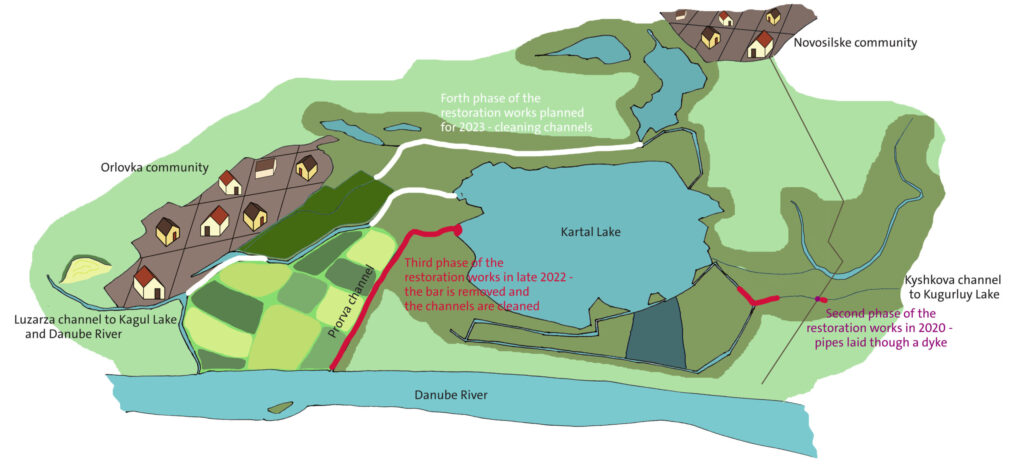
Enhancing natural water flow
Over the winter, the Rewilding Ukraine team have overseen efforts to further renaturalise water flow in the delta by improving water exchange between the Danube and Kartal, Kagul, Kugurluy and Yalpug Lakes. This represents the third stage of restoration work, supported by the Endangered Landscapes Programme, with the second stage already providing multiple benefits for wild nature and communities. A final stage, which will see the Luzarza channel between Kartal and Kagul Lakes cleaned, is planned for the summer.
The recent work saw a sediment bar at the entrance to Kartal Lake – located on the Prorva channel that connects the lake with the Danube – removed. This huge bar, which formed because Prorva is an artificial channel, not only stopped water from the Danube filling the lake, but also impeded the reverse process of water discharge. A few obstacles, such as obsolete fish guards, were also removed, and shallow places along the Prorva channel and Kyshkova channel (which connects Kartal Lake with Kugurluy Lake) deepened.
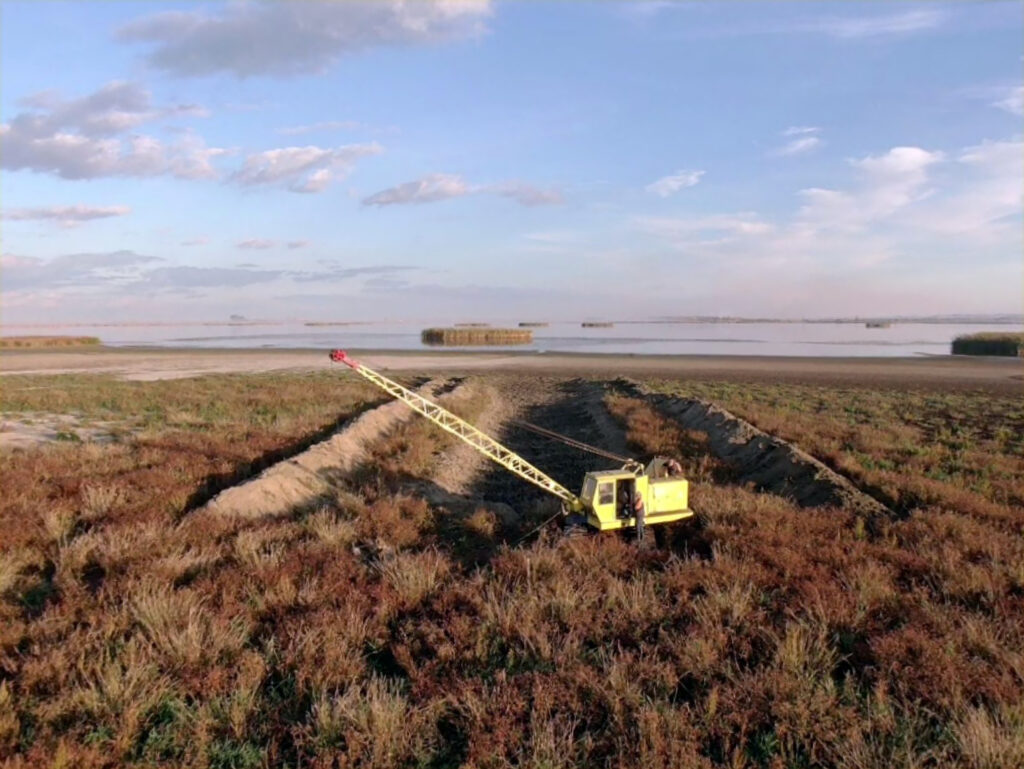
Diverse benefits
Improving water exchange between Kartal lake and the Danube will mean a whole system of water bodies fills and empties more quickly and efficiently. This will further enhance fish stocks and biodiversity in general, and improve water quality, delivering greater benefits to residents in local communities, who use the lakes for fishing, recreation,and irrigation.
Despite all of the challenges encountered because of the ongoing war, our long-term partnership with Rewilding Ukraine continues to bear fruit,” says Panas Zhechkov, Director of the Izmail Department of Water Resources, which carried out the work on the ground. “This latest stage of restoration will significantly improve the ecological condition of Kartal Lake, which is part of a wetland of international importance.
“After a severe drought in 2022, when Kartal Lake became critically shallow, joint efforts to restore natural flow ensured water from the Danube still flowed into the lake, which was really important. We have many plans for the future and it is exciting to see natural processes shaping a healthier and more natural delta.”
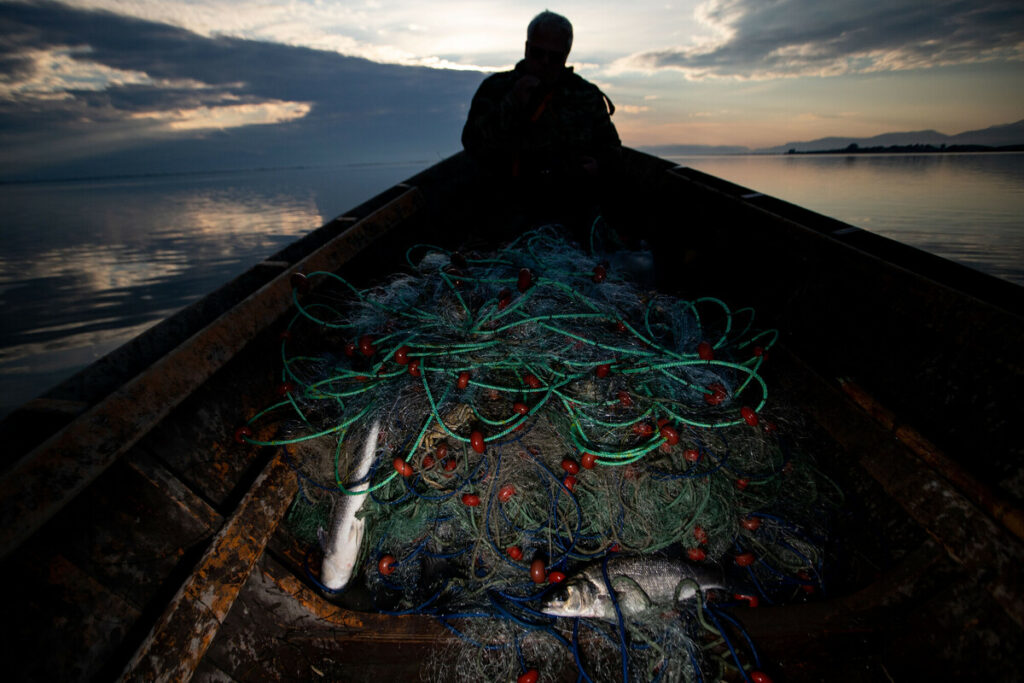
Platform progress
Coordinated by Rewilding Europe, the Pelican way of LIFE initiative kicked off in late 2019, with the aim of enhancing populations of the Dalmatian pelican in southwest Europe – including in the Danube Delta, one of the strongholds of the species. Over the last few years, as part of the initiative, the Rewilding Ukraine team have constructed a number of artificial nesting platforms in different locations to encourage the birds to breed and support the comeback of these gentle giants.
The latest of these platforms was constructed on one of the lakes in the heart of the Ukrainian part of the Danube Delta, and the Rewilding Ukraine team hopes that this season the birds will build their nests on it. Efforts to restore water flow in many of the water bodies on the Ukrainian side will significantly improve the chances of this happening.
“While Dalmatian pelicans build their nests in different wetlands – from Greece to Ukraine – not a single nest has been recorded in our country for several years,” says Oleg Dyakov, a rewilding officer with Rewilding Ukraine. “With the help of these platforms, and in conjunction with the lake restoration work, we are trying to create the right conditions for the birds to reproduce, although it has been difficult to check on the platforms because of the conflict. We all have our fingers crossed!”
Want to know more?
